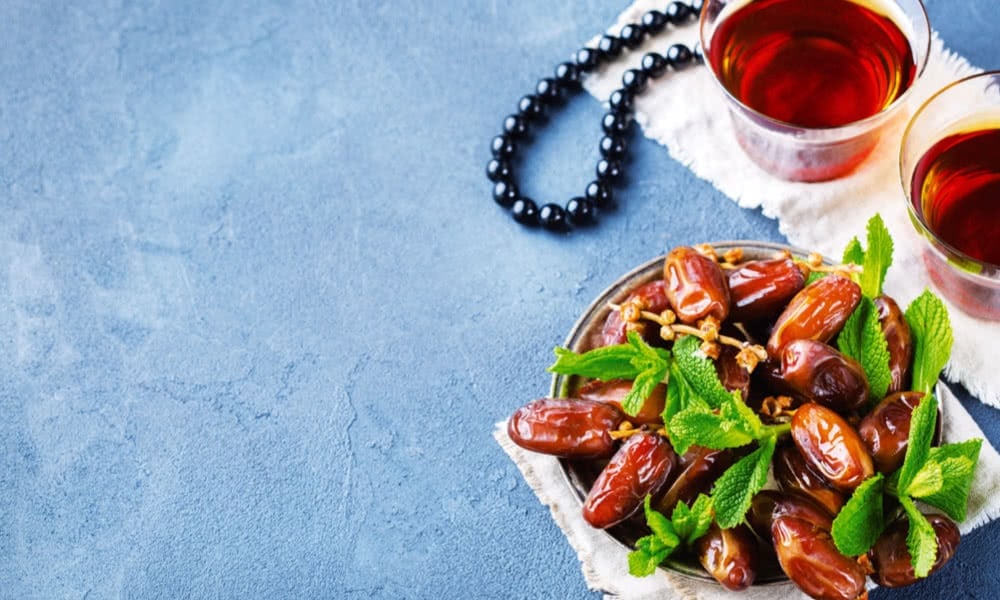
Often visitors to Zanzibar wonder if Ramadan (also: Ramadhan), the holiest time of the year for Muslims around the world, is the right time to visit the island. Holidaymakers need not worry: While it is true, that the mood during this time somewhat changes to a more quiet and meditative state, everyone’s welcome to join in. In fact, it can be an especially enlightening time and tourists are encouraged to learn more about its meanings and customs.
So the answer is a clear “Yes”. The pole pole (“slow slow”) archipelago may be even more pole, making it the perfect time to kick back and relax. While respecting the day-time fasting mode, most hotels and restaurants do offer food and beverage throughout, albeit a bit away from the public eye. In the evening they pull out all the stops for iftar, the fast-breaking meal, with opulent local traditional and Arabesque menus. Serena Hotel for instance, a classic 5-star located in the capital city of Stone Town, is known for its wide range of exceptional Ramadan meals. Assistant Manager Ayoub Msoffe says, in 2020 diners can expect “coastal to Arabic, Swahili and Indian to African specialties all of which are delicious and healthy.” Anyone is welcome to join. Remember to ask your selected hotel or resort, too, about their Ramadan offerings when booking.
The ninth month of the Islamic lunar calendar is considered the holiest time of the year by Muslims, in terms of festivities and spiritual thoughts, and perhaos comparable to Christmas or Eastern time in the Christian faith.
The actuals dates of Ramadan vary annually on the Gregorian calendar and depend on the sighting of the moon. This year Ramadan will occur around 24 April - 23 May. It is believed, that Prophet Mohammed revealed the opening verses of the Holy Quran at this time. The Muslim community marks this pivotal moment with self-restraint and devotion through faith (shahadah), prayer (salah), charity (zakat), fasting (sawm) and pilgrimage (hajj). These are the 5 pillars of Islam. While everyone may have his personal approach to it (see testimonials #My Ramadan) the essence of Ramadan is often defined as “self-restraint, empathy and generosity”, as Omari Hamis, a Zanzibar teacher, puts it. Eid al Fitr (“Festival of Breaking the Fast”) marks the end of the holy month with festivities and presents.
Islamic culture and hospitality are at their peak during the holy month. It is a month of mercy where noble intentions are believed to bring greater reward. Business is expected to slow down as the focus shifts to a more spiritual and family oriented state. After the sun goes down, family and friends come together for the breaking of the fast, or iftar. Iftar begins at dusk and may continue into late hours, with a delectable array of foods to choose from, non-alcoholic drinks, coffee and tea. Suhur is offered just before sunrise, before the day of fasting begins. During the fasting hours no food, no drinks including water and no cigarettes are consumed. “You get used to it”, says guide Aiysha Mohammed, who works her normal hours during Ramadan.
Ready to immerse yourself in a new cultural experience? Here some basic rules of general etiquette in public spaces during the time of Ramadan:
In respect to those fasting don’t eat or drink in front of them. Most hotels will have sections where one can eat away from those fasting.
Be generous to those less fortunate, donate what you can, food, clothes or money to individuals and charitable organisations.
Smoking in public is not allowed for believers during the holy month, and may also be a good time to quit.
Use the custom greeting “Ramadan Kareem” when meeting Muslims, and for Eid celebrations, “Eid Mubarak”.